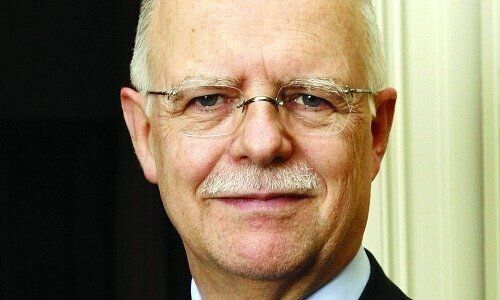In his article for finews.com, retired Swiss finance professor and entrepreneur Martin Janssen argues that people choose the Federal Council through a block vote. He believes there would be some advantages to this compared with the current democratic deficit in our country.
Switzerland has a long tradition of democratic decision-making. Some features, particularly mandatory and optional referendums, and the right to submit initiatives, are unique in the world. The first allows a parliamentary bill to be rejected by the majority of the people, while with the second, the constitution can be amended by a majority of the people and the cantons. There are a lot of reasons why the country can truly be called the «oldest democracy in the world».
But Switzerland also faces a clear democratic problem: the legislature, not the people, elects the executive, judicial and law enforcement branches. And the constitution, or rather its essence, is increasingly being hollowed out.
Legislature and Political Parties Violate the Constitution
I believe the people are carelessly neglecting the protection of property rights when it comes to tax hikes. In dealing with COVID and the takeover of Credit Suisse by UBS the Federal Council has relied on an emergency law that may be used under the grounds of «external and internal security» to «counter existing or imminent threats of serious disruption to public order or internal or external security». And the legislature and political parties violate the constitution by not implementing constitutional provisions, and without there being any repercussions.
In some places, it seems people have gotten used to the idea that the Constitution does not have to be taken too literally. Below we will discuss a minor point from this list of sins that will be relevant in the forthcoming Federal Council election.
This Contradicts the Magic Formula
Under Article 161(1) of the Federal Constitution (prohibition of voting instructions), no member of the Federal Assembly may vote on the instructions of another person. This contradicts the magic formula, which states that the three largest parties each nominate two federal councilors, while the fourth nominates one. Of course, having a coalition government in conjunction with the optional referendum makes sense.
However, the practice under which the parties use the magic formula to effectively determine who can be elected to the Federal Council by their party clearly violates Article 161. This has been all the truer since the incorporation of an exclusion clause in the Swiss People’s Party’s (SVP) statutes: a member of the SVP who is elected to the Federal Council can be excluded from the party if they have not been formally endorsed.
Choosing a «Non-Endorsed» Candidate
In preparation for the by-election on December 13, 2023, the Social Democratic Party picked two out of six candidates, Jon Pult and Beat Jans, for the Federal Council ticket. As this ticket is considered «very left» by the majority of parties, Christoph Blocher (SVP) suggested, among other things, choosing a «non-endorsed» candidate. Some interesting strategies have been floated that the non-socialist parties could pin the blame on the socialists after the election if neither of the two official candidates are elected.
Considering this, it is worth looking at an article by the late Bernese economics professor Juerg Niehans. In a piece in «Schweizer Monatshefte» (now «Schweizer Monat») from 1999, he suggested that the Federal Council should be chosen through a block election by the people.
Extreme Groups Have Little Chance of Being Elected
Taking place two years after the election of the National Council, the Federal Council election would be held in which, say, a maximum of six groups of seven people who want to be elected to the Federal Council together would compete against each other. The groups of seven would constitute themselves, and an individual can be a member of multiple groups. If no group achieves an absolute majority, a second round would then take place involving the top two groups.
What is interesting about this proposal is that it is straightforward to see that extreme groups – representatives of only one party, only women, only young people, etc. – have little chance of being elected. This means there will be groups of seven standing for election which are relatively balanced. Unlike the current situation, people who want to work together and also have a good opinion of each other will come together. And naturally, the pool of candidates will be bigger than at present. The parties may attempt to field their favored candidates to safeguard the magic formula. There is though no guarantee this arrangement would survive.
Time to Address Deficits in Democracy
The next Federal Council elections will proceed as they have always done. But it remains to be seen whether the Social Democrat’s ticket will succeed. After the elections, there will though be time to address the above-mentioned deficits in democracy and also consider allowing a popular vote to elect the Federal Council, possibly along the lines of Juerg Niehans’ idea.
Martin C. Janssen taught economics and finance at the University of Zurich, at the University of St. Gallen, at the ETH Zurich, at the University of Rochester (N.Y.), and other institutions for more than 50 years, until 2021 as a part-time professor of financial economics. In 2013, he was named professor emeritus. In 1986, he founded Ecofin which has become a group of companies, active as a strategic advisor to large institutional and private investors, as a supplier of asset management solutions, and as a provider of fintech solutions in asset and risk management. He acts as CEO of the Ecofin Group. He holds a doctorate in economics from the University of Zurich. He was a co-founder of «alliancefinance», which represents the interests of small banks and independent asset managers, and he is a board member of the Swiss Risk Association. He has been a member of the Mont Pelèrin Society since 1987.






























